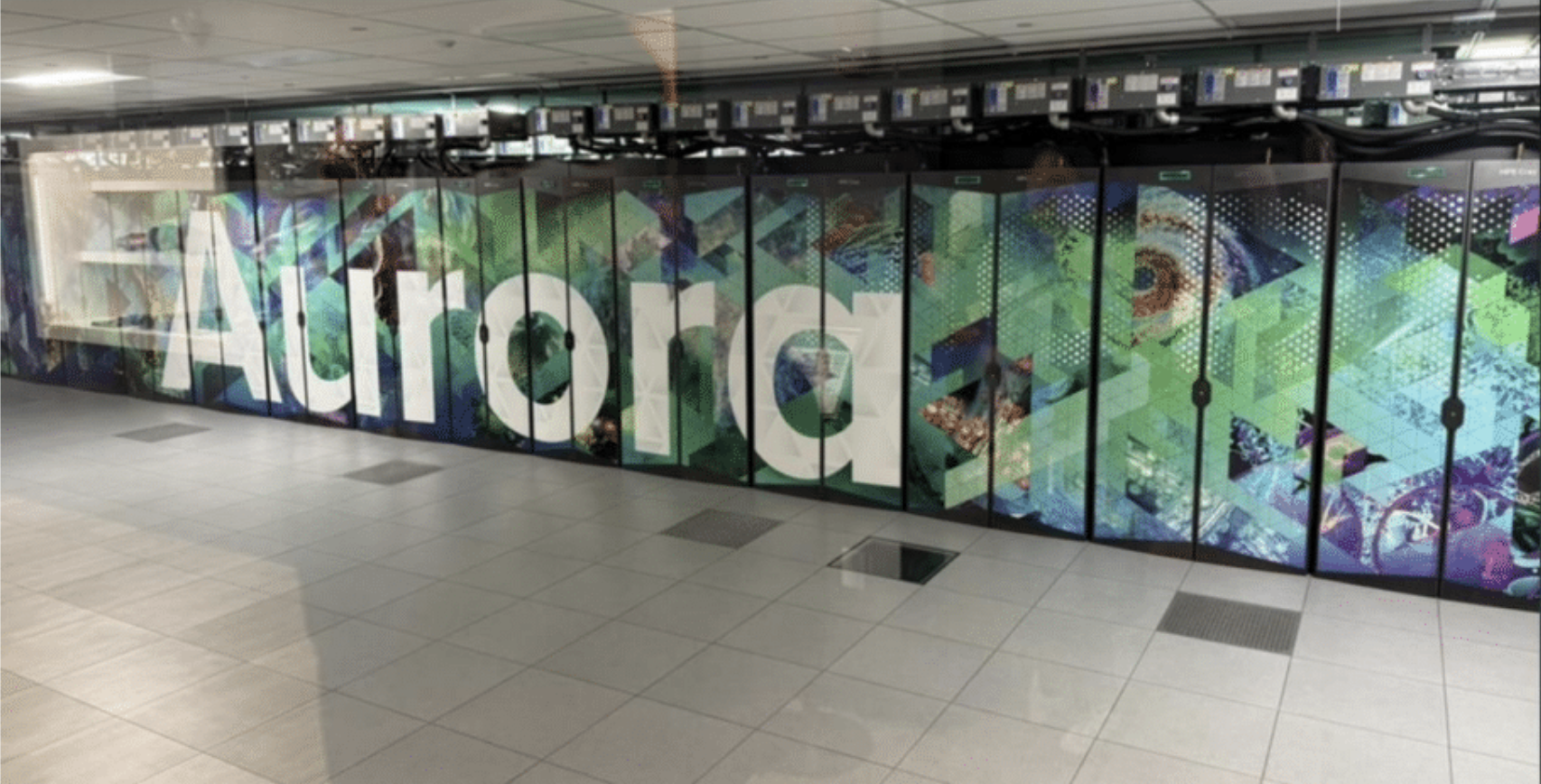Purdue joins ALCF Lighthouse Initiative, leveraging additional computational and AI resources to advance critical research
The Rosen Center for Advanced Computing (RCAC) is joining forces with the U.S. Department of Energy’s Argonne National Laboratory, through the newly launched Argonne Leadership Computing Facility (ALCF) Lighthouse Initiative. Thanks to this partnership, Purdue can contribute its research strengths in areas such as semiconductors, quantum information science, advanced manufacturing, and artificial intelligence to the nation at the highest possible scales, helping to accelerate the United States’ ability to translate breakthrough discoveries into real-world innovations.
The Argonne Leadership  Computing Facility Lighthouse Initiative is a program designed to expand ALCF’s user community and propel computational science forward by partnering with academic institutions. Created in 2024, the program’s goal is to broaden the reach of high-performance computing (HPC) and actively engage with the next generation of computing professionals. Purdue University is the fourth institution to join the initiative. As an ALCF partner and Lighthouse Institution, Purdue researchers have additional computational tools to conduct innovative science at scale, enabling Purdue to advance discovery and achieve significant breakthroughs previously unimaginable.
Computing Facility Lighthouse Initiative is a program designed to expand ALCF’s user community and propel computational science forward by partnering with academic institutions. Created in 2024, the program’s goal is to broaden the reach of high-performance computing (HPC) and actively engage with the next generation of computing professionals. Purdue University is the fourth institution to join the initiative. As an ALCF partner and Lighthouse Institution, Purdue researchers have additional computational tools to conduct innovative science at scale, enabling Purdue to advance discovery and achieve significant breakthroughs previously unimaginable.
“We’re excited to see the impact that partnering with the ALCF Lighthouse program will make for Purdue researchers in helping them to solve their scientific problems using both physics-based simulation and AI,” says Preston Smith, executive director of RCAC and director of computing infrastructure for Purdue’s Institute for Physical Artificial Intelligence. “Between our powerful campus resources, the National Science Foundation’s ACCESS program where we operate Anvil, and now the ALCF Lighthouse partnership, there’s a clear path for researchers to scale up to the most powerful machines in the nation. Our team is ready to assist researchers who are ready to scale up, all the way from their laptop to Aurora.”
This collaboration stems from the growing institutional partnership between Purdue and Argonne, which focuses on areas of mutual scientific and technical interest, such as microelectronics, quantum information science, material science, nuclear science and engineering, computing, and energy storage and recycling.
As an ALCF Lighthouse Institution, Purdue will gain access to ALCF machines, and the RCAC staff will receive intensive training on the use of these systems. RCAC will then be able to provide support for Purdue faculty and researchers looking to scale their science to leadership-class systems. This includes:
- Preparing, porting, and testing applications for suitability of ALCF resources
- Scaling applications for use on ALCF systems
- Aiding in migrating projects from Lighthouse to an ALCF larger allocation, such as INCITE/ALCC/Director’s Discretionary for graduating projects
- Offering access to specialized training tailored for the Purdue researchers offered by ALCF
- Providing information about summer internship opportunities for students
RCAC will identify and onboard users whose research projects could best utilize the advanced HPC resources provided by ALCF. These users will then be granted access to GPU-accelerated nodes on both the Polaris and Aurora supercomputers. Aurora is one of the world’s most powerful supercomputers. As an exascale system, it is able to perform over a quintillion calculations per second. Purdue faculty and researchers wanting to take advantage of this power must have a minimum job size of 10 nodes (40 GPUs), an indication of what scale of computing Aurora is capable of handling. Through this newfound partnership with ALCF, RCAC is helping Purdue in its persistent pursuit of innovation, driving the university to the forefront of science and technology.
“We’re excited to build a strong collaboration with Purdue University through the Lighthouse Initiative,” said ALCF Director Michael Papka. “Connecting Purdue’s outstanding research community with Argonne’s leadership in supercomputing and AI will empower a new generation of researchers to tackle critical challenges in science and technology.”
To learn more about the ALCF Lighthouse Initiative, please visit: https://www.alcf.anl.gov/lighthouse
Purdue faculty and researchers with scalable computing applications looking to apply for an ALCF Lighthouse Initiative resource allocation should contact rcac-help@purdue.edu.
Written by: Jonathan Poole, poole43@purdue.edu
